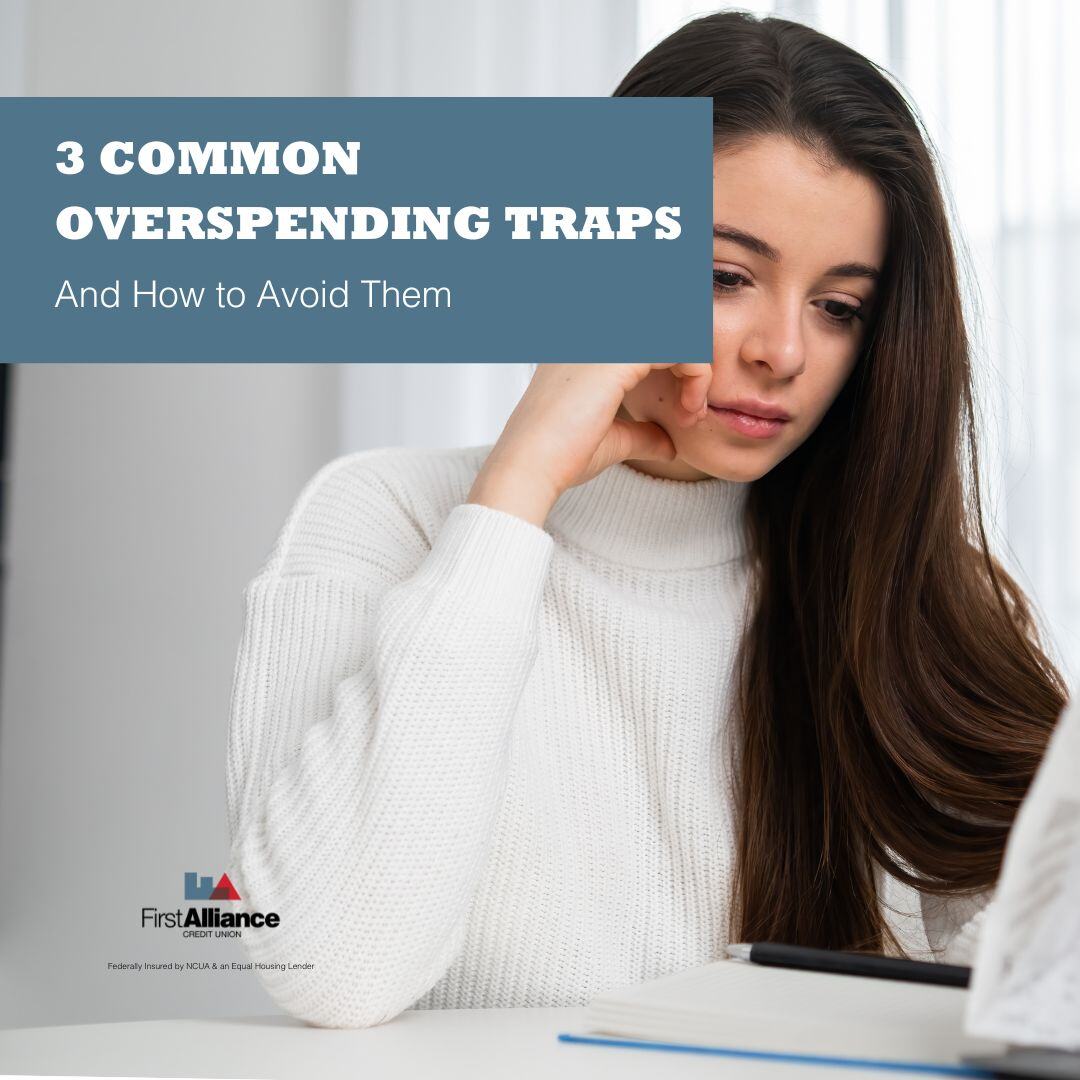Tips to Avoid Overspending
If you overspend, you are not alone: the average American spends $1.33 for every $1.00 earned. Our spending habits have become so routine that we...
4 min read
 Chris Gottschalk
:
Dec 22, 2020 5:45:00 AM
Chris Gottschalk
:
Dec 22, 2020 5:45:00 AM

Overspending is a huge problem in society. According to one survey, the average American overspends by almost $7,500 a year, using credit cards and pay day loans to make up the difference. While there’s nothing inherently wrong with spending money on things you like, such as eating out or subscription services, when you overspend on these kinds of items you have less money for your needs and financial goals.
 How to Avoid Overspending Traps
How to Avoid Overspending TrapsThe problem is this—most people know that overspending is bad, and yet they can’t seem to stop themselves. They’re at the mercy of psychological traps that cause them to overspend, and often by the time they realize they’ve fallen for one of these traps they’ve already made a purchase.
The good news, though, is that once you know what these traps are, you can be more aware of when you’re at risk of overspending. Even better, you can take steps to avoid these traps and put a stop to overspending once and for all.
 Buying something feels good in a way that saving money just doesn’t. This is thanks to the principle of immediate gratification.
Buying something feels good in a way that saving money just doesn’t. This is thanks to the principle of immediate gratification.
Human beings are wired to pay more attention to what’s directly in front of us than we are to think about abstract events like the future. As a result, we prefer smaller, more immediate rewards instead of larger rewards that might be delayed a while. In other words, we’d rather buy a $30 shirt now rather than get $300 in a year.
The trick to overcoming instant gratification is to work on your impulse control. One of the easiest ways to do this is to simply cut out making unplanned purchases altogether. If you do see something that strikes your fancy in the store, give yourself a day to think it over and see if the purchase fits in your budget.
Another way to cut down on impulse buying is to create a wish list of all the things you’d like to get. Go through this list on a regular basis and see which items you’d still like to buy, and which items you didn’t really want after all. For the items you still want to buy, do some comparison shopping to ensure you’ll get the best price, then purchase the item if it won’t break your budget. This will help you separate wants versus needs.

In days of old, when you bought an item that cost $10, you’d have to pay with physical money. These days, though, you can whip out your credit or debit card to make the transaction.
This is an advantage in several ways, but the biggest problem with using a credit card, debit card or any other type of electronic payment is that we’ve effectively separated the purchase from the payment itself. What this means is that when you make a purchase, you don’t have to balance the joy you feel from getting the item with the pain of having to pay for it. This is a mental process called decoupling, and it’s the reason why people are willing to pay anywhere from 83% to 200% more for an item when they use their credit card instead of cash.
If you’re going to combat decoupling, the best option would be to stop using credit and debit cards completely and pay for everything with cash. Since that’s not always convenient or even possible, the next best option is to rely solely on debit cards for most purchases. It will tie your purchases to the money you have in your checking account, and even though you won’t feel the same pain you’d feel if you were paying cash, you will see the money in your checking account decrease with each purchase you make.
 No financial expert will ever tell you to spend money keeping up with the Joneses. However, what they won’t tell you is that we’re hard-wired to want to be accepted by the people in our social groups, and part of being accepted is having the same things they have. Over 66% of consumers feel some type of peer pressure as far as the type of food and gadgets they’ll buy, and thanks to the mental process of social facilitation, many people feel they have to make sure their belongings are on par with the belongings of the people in their social group.
No financial expert will ever tell you to spend money keeping up with the Joneses. However, what they won’t tell you is that we’re hard-wired to want to be accepted by the people in our social groups, and part of being accepted is having the same things they have. Over 66% of consumers feel some type of peer pressure as far as the type of food and gadgets they’ll buy, and thanks to the mental process of social facilitation, many people feel they have to make sure their belongings are on par with the belongings of the people in their social group.
This can be a difficult trap to avoid, but you can get around it by planning ahead. If you really feel you need a new iPhone because all of your friends have the latest model, figure out if you can purchase it without breaking your budget. If you know you can’t, then no amount of peer pressure will be able to convince you it’s a good idea.
You can also get rid of this societal pressure to keep up by opening up with your friends about the state of your finances. You can come out and say you can’t afford a new iPhone right now because you need to pay for car repairs or something similar. You can also suggest less costly options for getting together, such as sitting around a campfire instead of going to a bar.
Overspending can be a serious problem. However, once you become aware of the psychological traps that lead to overspending, you can take steps to avoid them and get more control over your money.
You can also get more control over your money when you become a member of First Alliance Credit Union today. We have several tools that will let you avoid those psychological overspending traps, including the First Alliance mobile app with the MyCards feature that will let you limit what types of businesses you can use your cards at, the dollar amount of purchases on your cards and even the geographical area in which you can use your cards. This is a fantastic tool to help you cut down on overspending.

If you overspend, you are not alone: the average American spends $1.33 for every $1.00 earned. Our spending habits have become so routine that we...

Do you feel like you have tried all the tricks in the book to curb your overspending habits? You’ve tried various budgeting tactics, couponing,...
.jpg)
Buying a new house is exciting, but it’s easy to be swept up in the process and make a mistake that might cost you thousands of dollars. Fortunately,...